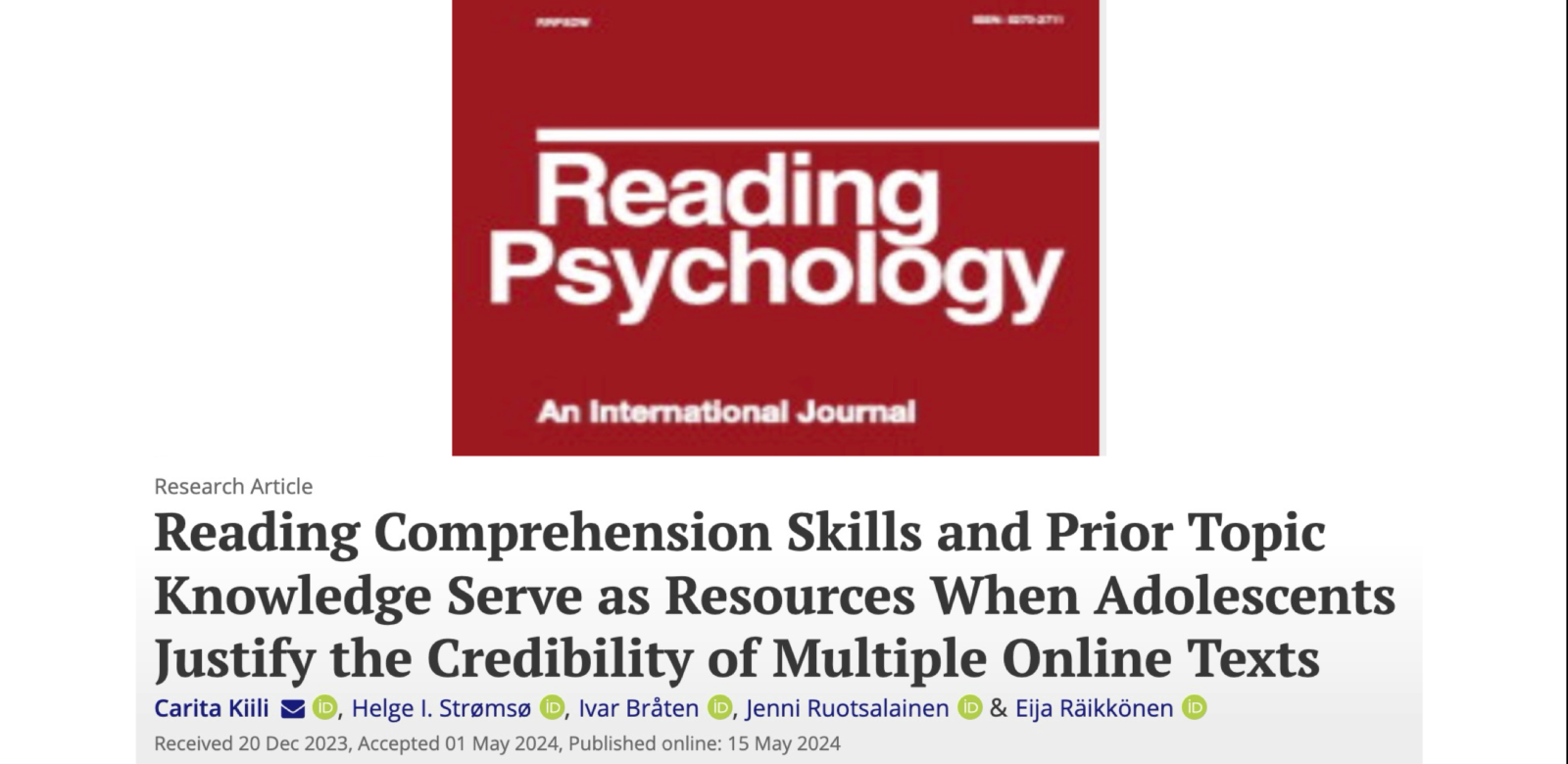Our researcher, Carita Kiili, and her colleagues explored the relationship between adolescents’ skills to justify the credibility of online texts, word recognition, reading comprehension, and prior knowledge. The study, co-authored with Helge Strømsø, Ivar Bråten, Jenni Ruotsalainen, and Eija Räikkönen, was published in Reading Psychology.
In the study, sixth graders read four online texts—two more credible and two less credible ones—and justified the author’s expertise, benevolence, and quality of evidence in each text. There are several unique features in the study,
First, the authors examined students’ justification skills with multiple-choice items. They utilized previous open-ended responses to formulate 12 items that required justifying expertise, benevolence, and quality of evidence. Students’ skills in identifying the author, the main claim, and supporting evidence were also examined. Identification was easier for students than justifying the credibility.
Second, it was found that word recognition and reading comprehension predicted identification performance, whereas prior knowledge and reading comprehension predicted justification performance.
Third, as many reading comprehension tests measure various comprehension skills, the study also examined how different reading comprehension items were associated with identification and justification performance. The analysis revealed that easier items (e.g., locating a detail) were associated with identification, whereas more difficult items (e.g., requiring inferencing) were associated with justification performance.
This means that justifying credibility required more demanding reading processes than identifying the author and argument. Students needed to make more inferences beyond the text to justify credibility, and prior topic knowledge was found to support this process.
Reading comprehension and prior knowledge are crucial resources for critical reading. This highlights educators’ critical role in supporting students’ development as proficient readers and helping students build a solid knowledge base.
The open-access article also offers knowledge on how well students justified the authors’ expertise, the author’s benevolence, and the quality of evidence.
The study was part of Kiili’s Educating for Critical Online Readers project funded by the Research Council of Finland (No. 324524).

